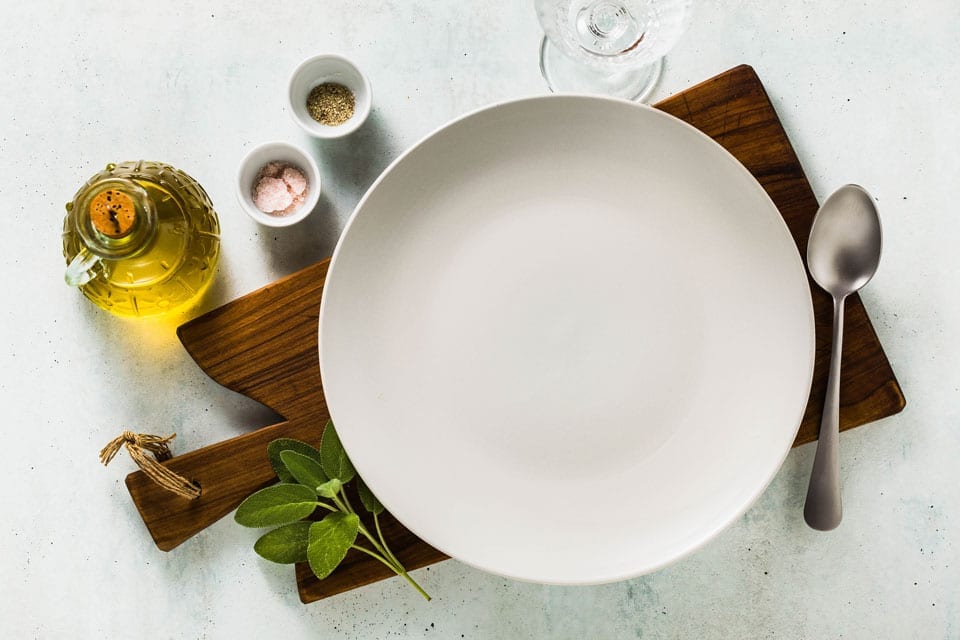Why When you Eat What is More Important Than What You Eat
Did you know that when you first wake in the morning you are a fat-burning machine? If you haven’t eaten anything since your dinner meal, your body is in a fasting state known as ketosis. Ketosis simply means your body switches from using glucose to ketones for energy. And these ketones are incredibly healthy. In fact, not only are they healthy in terms of creating an anti-inflammatory milieu but they may also help you decrease body fat and gain sexy, lean muscle. Many people have lost stubborn pounds just by taking advantage of a longer fasting period between dinner and breakfast. That’s it! No fancy shakes or detox elixirs necessary. By simply creating the space for your body to produce more ketones by extending the normal overnight fasting period you can give your body a total reset without any other bells and whistles.
What happens is your blood sugar drops, your insulin decreases while your glucagon increases, triggering your body to enter fasting mode. As this happens, you shift to fat as a primary source of fuel. While transforming body fat into muscle looks sexy, the real beauty is what’s happening on a cellular level. You see, when your glucagon levels are higher than your insulin because of fasting, you ignite the process of autophagy which not only improves how you look but how you feel and how well you live.
What if you could extend the benefits of that overnight fast, bolstering autophagy, repair, and motivating metabolism, just by following one simple daily rule about when you eat what?
The rule is … Fat First, Carbs Last.
Why Fuel With Fat First
Lose weight while sparing muscle. Eating fat at your first meal will encourage your body to keep burning fat (rather than storing it) and will keep you fuller throughout the day. When you eat carbohydrates or protein, insulin is released. Insulin tells the body to use or store what you eat. Without spiking insulin to encourage fat storage, you continue to burn fat for energy after an overnight fast. Furthermore, your high-fat breakfast will encourage you to keep burning fat for stable energy throughout the entire day. Whereas a high carbohydrate breakfast likely only gives you short-term energy that lasts likely a couple of hours before you crash.
Less insulin, less weight gain.
Less insulin, more energy.
Less insulin, higher quality wellness. Read on to understand why.
Clean up your cells. The benefits go beyond the cosmetic: rising insulin also shuts down autophagy, a cellular recycling and repair process that can help reduce your cancer risk, boost your immune system and support graceful aging. Fortunately, you do not need to always be in a fat-burning state to activate your “cellular cleanup crew!” Since you are already activating autophagy when you wake, make the choice to shift carbohydrate intake to the latter half of the day in order to keep up this repair work for longer, and reap the health benefits such as reduced risk of diabetes and heart disease, or younger, glowing skin!
Make Fat Part of Every Meal
According to a study in The International Journal of Obesity comparing high fat to high carbohydrate breakfasts, subjects eating more fat had normal metabolic profiles while those eating more carbohydrate moved toward metabolic syndrome: glucose intolerance, weight gain, and fat gain.
What does a high-fat breakfast look like? To boost fat-burning with stable energy, choose either:
- Not to eat a full meal but rather to extend your fat-burning metabolism by choosing a beverage with fat in it. You may be surprised how “full” you can feel without protein or carbohydrate.
- A high-fat, moderate-protein, low-carbohydrate breakfast with fat from eggs, avocado, or added fats (like tea seed oil). Bolster your meal with low-carbohydrate, non-starchy vegetables like spinach, onions, or mushrooms. Vegetable fiber will help keep you fuller longer and comes alongside a plant-powered dose of nutrition!
Concerned about getting enough fat during your day? Try these tips:
- Explore added fats such as unrefined, cold-pressed walnut oil, coconut oil, tea seed oil, olive oil, or sesame oil.
- Explore whole foods with high-quality fats such as cold-water fish (like Wild Alaskan salmon or cod, sardines, and mackerel), nuts, seeds, avocados, and olives.
- Drizzle fat over meals alone or as part of a dressing or vinaigrette (or homemade mayonnaise).
- Enjoy adding fat to tea or coffee.
- Cook meals with healthy oils.
- Use nitrate-free bacon to boost the fat content of a meal and enhance flavor.
Why Eat Carbs Last
If carbohydrates shut down fat-burning, why eat them at all? Carbohydrates are important foods in our diet in many ways which we can still benefit from by eating them later in the day rather than at the beginning. Some benefits of including healthy carbohydrates, like fruits, vegetables, and legumes, include:
- Nutritional benefits, including vitamins, minerals, and plant-chemicals that support metabolism and some (like polyphenols) that even promote repair due to their anti-inflammatory constituents.
- Fiber supports healthy digestion and feeds probiotics (friendly bacteria to support your microbiome), reduces spikes in blood sugar, and keeps you feeling fuller longer.
- Quick energy for the body (especially useful alongside intense exercise).
- “Good” stress on the body, which promotes autophagy (but less is more).
- Boost brain chemicals that improve mood (great for relaxing in the evening and getting restorative sleep).
Choosing carbohydrates, later on, will not only boost fat burning and autophagy during the day but also will allow you to be in an ideal state of sleep as your body transitions through changes with insulin and glucagon. By choosing fat first and carbs last, you can reap the cell-renewing, life-extending benefits of autophagy every day.





